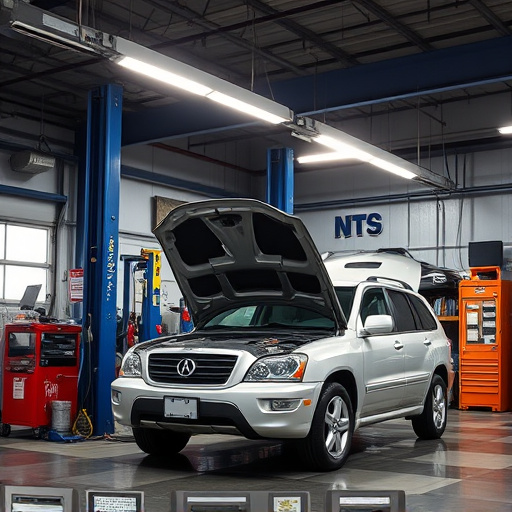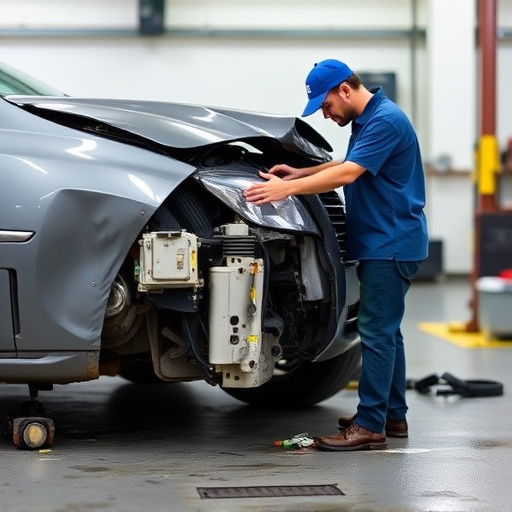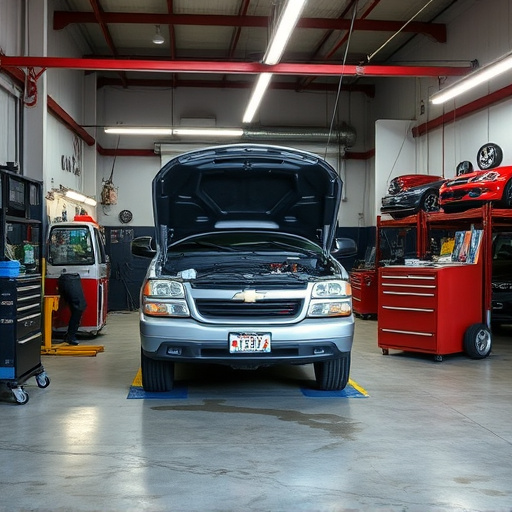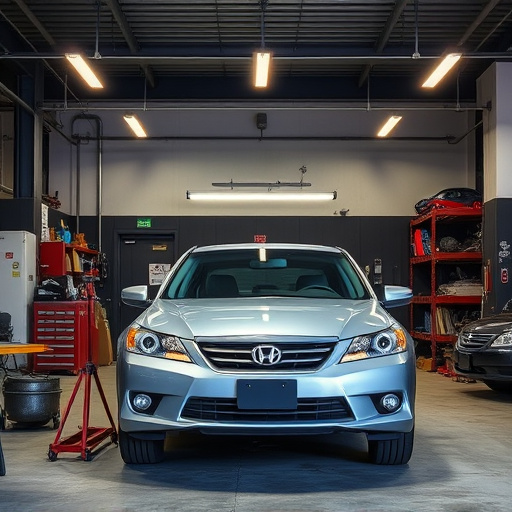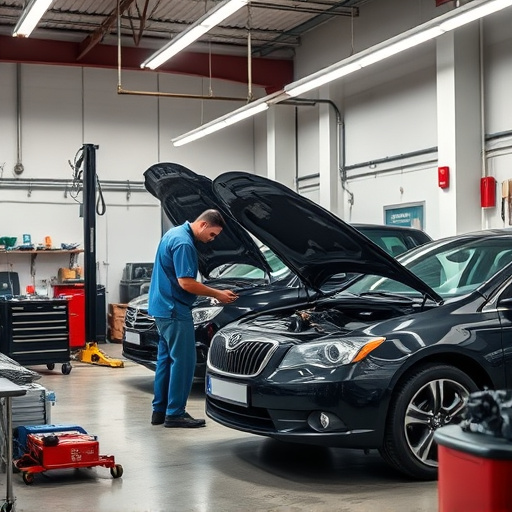Mercedes run-flat tire replacement is crucial for maintaining vehicle safety and performance. These tires allow limited driving post-puncture, but severe damage or prolonged exposure to sharp objects or extreme weather necessitate timely replacement. Regular inspections and prompt dent removal prevent further issues. Run-flats offer enhanced safety, convenience, and longer lifespan compared to traditional tires, making them a valuable investment for luxury vehicle owners and fleet services.
Mercedes run-flat tires offer unparalleled convenience and safety features, but understanding when replacement is absolutely necessary is crucial. This comprehensive guide delves into the intricacies of these innovative tires, outlining key indicators for their replacement. From punctures to structural damage, we explore common issues that warrant Mercedes run-flat tire replacement. Additionally, we weigh the benefits against cost considerations, providing insights to help drivers make informed decisions.
- Understanding Mercedes Run-Flat Tires
- When Replacement Becomes Necessary
- Benefits and Cost Consideration
Understanding Mercedes Run-Flat Tires

Mercedes run-flat tires are designed to provide continuous mobility even after a puncture, making them a unique and advanced safety feature. These tires have a special internal structure that allows them to maintain their shape and support the vehicle’s weight for a limited distance following a damage or deflation. This innovative system is particularly useful in situations where immediate tire replacement isn’t feasible, such as being stranded on the side of the road or navigating through remote areas.
However, while Mercedes run-flat tires offer significant advantages, it’s crucial to understand their limitations. Over time, these tires can sustain wear and tear, especially from severe impacts like a fender bender. If a run-flat tire shows signs of damage, deep cuts, or abnormal wear patterns, it may no longer be effective. In such cases, Mercedes run-flat tire replacement becomes absolutely necessary for safety reasons. An auto repair shop equipped with specialized tools and trained technicians can accurately assess and replace these tires, ensuring your vehicle’s continued safety and performance.
When Replacement Becomes Necessary
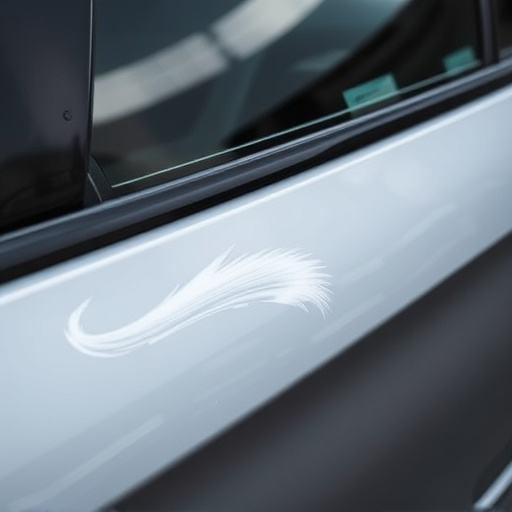
When it comes to Mercedes run-flat tire replacement, understanding when it’s absolutely necessary is key. These specialized tires are designed to maintain vehicle stability and safety in case of a sudden puncture, allowing for continued driving at reduced speeds. However, over time, their integrity can be compromised by various factors such as severe punctures, deep cuts, or even excessive wear. If the run-flat tire shows signs of significant damage, like a large dent or deep cut that extends into the sidewall, replacement becomes essential. Ignoring such issues could lead to reduced handling and potentially dangerous driving conditions.
Additionally, if the tire’s structural integrity is compromised due to prolonged exposure to sharp objects or extreme weather conditions, it’s crucial to opt for a Mercedes run-flat tire replacement. Regular inspections can help identify even subtle damage, ensuring your vehicle’s safety and maintaining optimal performance. Remember, prompt dent removal and subsequent vehicle body repair, when it comes to run-flat tires, is vital to prevent further complications and ensure the tire retains its designed functionality.
Benefits and Cost Consideration

Mercedes run-flat tire replacement offers several significant benefits that can enhance safety and convenience for drivers. Run-flat tires are designed to withstand minor punctures, allowing drivers to continue their journey at reduced speeds for a limited distance. This feature is particularly valuable in remote areas or situations where immediate tire replacement may be impractical. Moreover, it reduces the risk of accidents caused by sudden tire failures, making it an appealing option for luxury vehicle owners and fleet repair services alike.
While the initial cost of Mercedes run-flat tire replacement might be higher than conventional tires, considering long-term savings is crucial. Run-flats typically have a longer lifespan due to their robust construction and reduced exposure to extreme conditions. This longevity translates into fewer replacements over time, saving money in the process. When compared to traditional tires, fleet repair services can benefit from reduced downtime and lower maintenance costs associated with run-flat tire replacement, making it a financially sensible choice for many automotive restoration scenarios.
Mercedes run-flat tire replacements are not just a convenience, but often an absolute necessity for maintaining optimal vehicle safety and performance. Understanding when to replace these specialized tires is key. While they offer benefits like continued mobility in case of a puncture, their effectiveness is not unlimited. Regular inspection and prompt replacement when damage or wear exceeds recommended limits are crucial. Weighing the benefits against costs ensures you’re prepared for this essential maintenance step, safeguarding both your vehicle’s integrity and your safety on the road.

